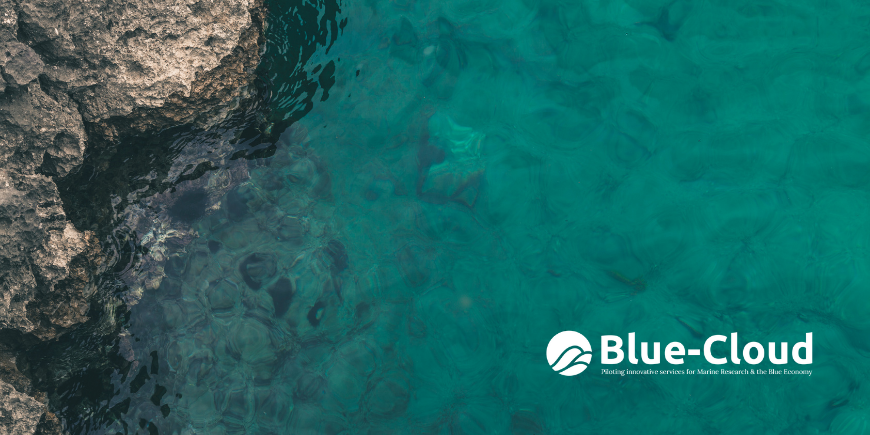
“The European Green Deal is Europe’s new growth strategy. We have to act now”
Ursula von der Leyen, President of the European Commission
The European Research & Innovation days have been organised from 22 to 24 September 2020 by the European Commission with the aim to strive for new solutions shaping our future, where policymakers, researchers, entrepreneurs and the public gathered.
The topics covered during these 3-day sessions have been focused on strategic themes like Digitalisation, EU Missions, Synergies, Policies and the need for a European Green Deal.
One fundamental topic linked to the EU Green Deal is the oceans’ preservation. Indeed, oceans and water systems play crucial roles in building a “sustainable” Blue-Economy to increase climate adaptation. Healthy and resilient oceans are vital to enhance marine resources and develop new findings to mitigate the use of toxic materials on lands and marine systems.
Within this context, the Blue-Cloud Horizon 2020 project has a strategic role, as it provides innovative services for Marine Research towards building a resilient and efficient Blue Economy. Blue-Cloud effectively facilitates marine research to access multidisciplinary Ocean data and provides researchers and the industry with tools, data and capacity to trigger innovative ways to better address grand societal challenges in the areas of fisheries, food security and traceability, aquaculture, plankton genomics, environmental changes and sustainability. Blue-Cloud through the support of 19 renowned international partners, 14 high level experts and a series of international synergies with relevant initiatives in the field, offers the unique and best Virtual Research Environment (VRE) for facilitating data sharing in Europe and beyond among public and private institutions. The stored data follows the FAIR principles (Findable, Accessible, Interoperable and Reusable) and provide open access to them. Sharing information and increasing knowledge is vital to develop a greener world.
All those actions are certainly needed to achieve the carbon reduction programmes of the EU. As Jean-Eric Paquet, General Director of DG Research & Innovation, highlighted during the Research & Innovation days, the challenging and impactful goals are to reduce 55% of CO2 emissions by 2030 and to make Europe a carbon free continent by 2050. The Blue-Cloud 2030 Roadmap provides the necessary insights on how to reply to this challenge and identifies a concrete set of actions to achieve this goal.
Anne Larigauderie, Executive Secretary of the Intergovernmental Science-Policy Platform on Biodiversity and Ecosystem Services (IPBES), during the R&I days, shared the last results of the biodiversity analysis IPBES has been working on. These are shocking as they show that, right now, 75% of land has been altered and the projection in 2050 is 90%. Therefore, active solutions need to be implemented quickly to preserve nature, which is essential for our current and future life.
Blue-Cloud effectively offers practical examples to solve these challenges through its 5 demonstrators aiming to support the marine environment (focused on different fields, such as biodiversity, genomics, environment, fisheries and aquaculture).
The 5 demonstrators have been chosen for the strategical benefits they can bring to the restoration of our oceans by focusing on different fields of the EU Green Deal. Biodiversity recovery is indeed the base to increase the sustainability of oceans and its loss can significantly damage the balance of our ecosystem. To this end, the Blue-Cloud Aquaculture Demonstrator is delivering a tool to produce national aquaculture sector overviews by collecting compliant data, and allowing for monitoring the sector not in an isolated way, but through interoperable services, where teams can compute and publish reproducible experiments worldwide, as further discussed in our latest webinar on Aquaculture from 25 September 2020.
John Bell himself, Director of a Healthy Planet, during the R&I days, stressed the importance of not just looking for new ideas, but providing real actions which can be transformed into practical results, new strategies to create a better economy, a fair society in a greener and more sustainable way. Data and knowledge sharing can certainly be a solution. Simultaneously, it is important to use these data to make analysis, future estimations and marine environmental indicators for better understanding how to act and protect our environment, as stated by both Hilde Eggermont, Coordinator BELSPO and Stephen Hart, Senior Investment Officer EIB.
The Blue-Cloud demonstrator on Fisheries constitutes the perfect framework for other organizations to manage large amounts of tabular data and use a meta-driven approach to maps. Blue-Cloud makes possible to ingest and merge fisheries data with other resources, thus allowing for cross-analysis, demonstrating we can combine fisheries, food and environmental data in a single infrastructure.
Therefore, building stronger, more reliable and harmonised data can bring benefits to better monitor aquaculture and fisheries. These are just a few concrete actions of the Blue-Cloud contribution to the EU Green Deal challenges.
If you would like to generate a real impact on marine sustainability along with us, then:
- Contact us and share some of the work you are doing in the marine economy, we’d love to hear back from you and organise joint activities
- Follow us on our social media channels: Twitter, LinkedIn
- Learn more about our 5 demonstrators here
